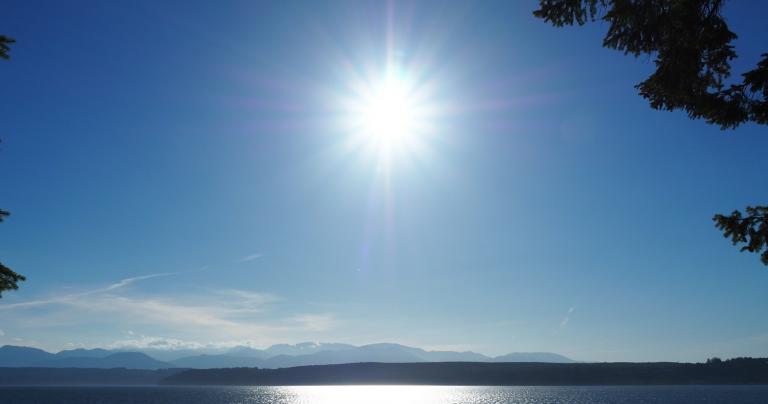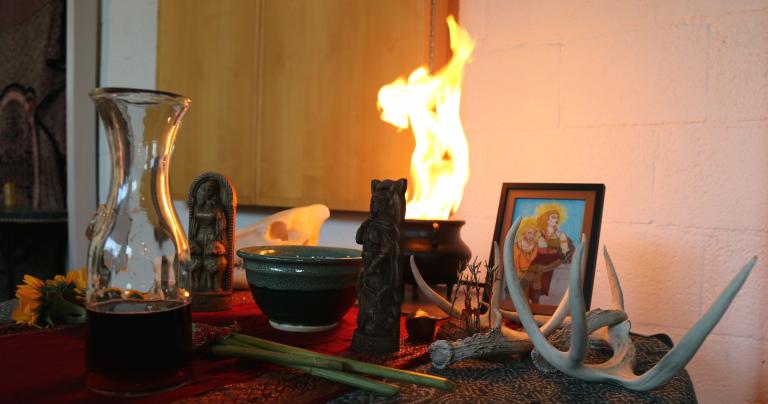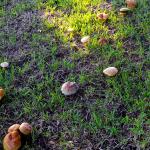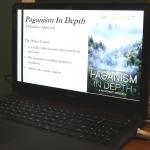Last month’s post 6 Roles For Solitary Practitioners in the Pagan Future generated far more responses than I expected, and many of them were not positive. I don’t expect everyone to agree with anything I write, but I found some of the comments surprising. Usually, if I get one bad comment, it’s from somebody who didn’t read the post. If there’s two, it’s somebody who nitpicks some minor point. But if there are multiple negative comments that usually means I didn’t do a good enough job of articulating my position.
A few people offered criticism of specific sections (which is always appreciated, whether I end up agreeing with you or not), but I think the core problem is that I was discussing one part of a future vision without ever describing the vision as a whole.
So in this post I want to talk about my vision for a Pagan future – what I hope the world and my little part of it will look like some time in the future.
A secular government with complete freedom of religion
Religion is ultimately about relationships, including relationships with our co-religionists. Religion is never only a private matter, but it is always a deeply personal matter. Forced religion and coerced religion are extremely unethical. Everyone must be free to follow the path that calls to them and must be equally free to leave a path at any time for any reason.
Government must never support one religion over another, or over no religion. And it must do this without hostility towards religion. Our government must be secular, not atheist.
This is easier said than done, particularly in a society that has long claimed freedom of religion, but made it clear some religions were more free than others. But my vision for a Pagan future takes place in a society that is officially secular and open to all.
A garden of many religions
I have no desire to live in a Pagan version of Saudi Arabia. Or for that matter, in a Pagan version of the Tennessee I grew up in where everybody was a Protestant of some sort, except for a few Catholics and Jews. Religious monopolies inevitably lead to corruption and oppression.
The idea that everyone should follow the same religion is unique to the conservative versions of Christianity and Islam. As much as I want Paganism – especially my particular flavor of Paganism – to flourish, the main thing I want is for everyone to find the religion that calls to them.
The contemporary West is the most religiously diverse society in the history of humanity and I hope that continues in the future. While I am a Pagan and I advocate for Paganism, I want to live in a glorious garden of many religions.
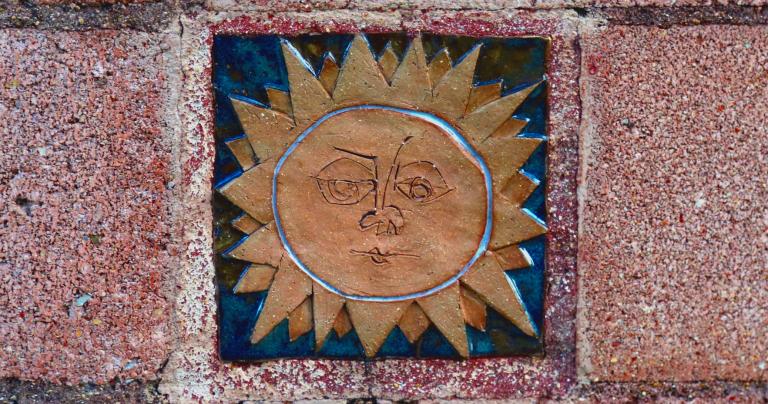
A predominance of Pagan values and culture
Any society that functions as a society will have at least some shared values and culture. They need not be identical – and they can’t be identical if we’re going to have multiple religions – but there must be something beyond sharing the same plot of ground.
There are some Pagan values that have wide appeal beyond practicing Pagans, most notably the idea of reverence for Nature and the value of diversity.
I would love to see Pagan culture spread as well. You can’t expect everyone to celebrate the eight high days on the Wheel of the Year, but you can expect everyone to know them, like everyone knows Christmas and Easter today.
Values and culture cannot be mandated. Well, they can, but that never works out – see the current right-wing attempt to mandate “patriotism” and flag worship. If our values and culture are to become widespread in the common society, we will have to do a good job of living them out and showing – not telling – other people why they’re good.
The three sections above are my vision for the wider society in a Pagan future. Now let’s look at what I hope to see from those of us who call ourselves Pagans.
A tripartite Paganism with multiple traditions
I think – and this is as much a prediction as a vision – that over time Paganism will organically congregate in three major areas: witchcraft, polytheism, and non-theistic Nature worship. There will be some overlap: this isn’t a clear-cut division like Christianity’s Protestant – Catholic – Orthodox or Islam’s Sunni – Shia splits. But over time I think most Pagan traditions will gradually slide into one of those three camps.
Within the three camps, though, there will be dozens, hundreds, perhaps even thousands of individual traditions. The best comparison is Protestant Christianity with its many denominations and independent churches. All these traditions will be autonomous, deciding their own beliefs, practices, and criteria for membership.
An unknown number of private Pagan traditions
The whole purpose of 6 Roles For Solitary Practitioners in the Pagan Future was to point out that even if my wildest dreams of institutional Paganism come true, there will always be a place for solitaries, back yard covens, and magical working groups of two or three or nine like-minded individuals. I couldn’t stop them if I wanted to, and I don’t want to.
Institutions bring stability, and the Pagan movement needs some stability. The bigger it gets, the more stability it needs. But a completely stable movement is a stagnant movement, and a stagnant movement soon becomes a dead movement. We need a constant influx of new ideas and new discoveries, and that comes most easily from small unstable groups operating at the fringes of Paganism.
Collegiality and networking
Contrary to some of the charges leveled against me recently, my vision for the Pagan future is decentralized, not hierarchical. But I really, really hope those decentralized traditions, orders, groves, covens and such manage to work together, at least on occasion.
Polytheism is a religious approach, not a religion. Hellenism and Heathenry are not the same things. But much of the “religious tech” of one polytheist tradition can be used by followers of other traditions. If a particular spell works in one magical tradition, it’s likely to work in other traditions.
Let’s not practice in silos. Let’s talk constantly and meet regularly to discuss what’s going well, what’s going badly, and what we can learn from each other. That doesn’t mean we worship together. It does means we should work together where we have common cause, particularly in the present where our values and culture are still in the minority.
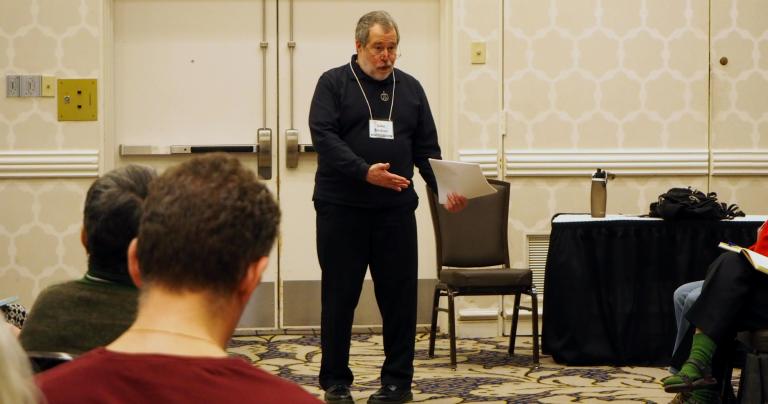
My tradition: an ecstatic devotional polytheism
Paganism, polytheism, witchcraft… none of these are one thing. And because they aren’t one thing none of us practice “Paganism.” We practice a particular Pagan tradition, and for more than a few of us, we are that tradition’s only member.
Two years ago I described what I do as “ancestral, devotional, ecstatic, oracular, magical, public, Pagan polytheism.” My tradition honors those who came before me. It forms relationships with some of the many Gods. It’s built on first-hand religious experience, including the direct experience of Gods and spirits. It acknowledges the reality of magic and seeks to use it to improve our lives and our world. It’s not an occult (hidden) tradition – it’s practiced in the open… or at least much of it is.
This is the level I write about most of the time: the things that are part of my particular Paganism.
I hope to help build a stable Pagan movement with institutions and infrastructure. But the big vision I’ve described in this post can’t be built from the top down. It has to be built from the bottom up.
For the past 16 years I’ve been doing that through Denton CUUPS. For the past 11 years I’ve been doing it through this blog. Now I’m adding books and classes, and some other stuff I don’t blog about – not yet, anyway.
This is what I hope to see in 50 years, 100 years, 300 years. Will we? Who knows. I’m trying to do the work in front of me… but at least occasionally I like think about where we’ll be long after I join the ancestors.
May your Paganism be what you need, and may you contribute something to the movement that will help insure it has a long and vibrant future.


